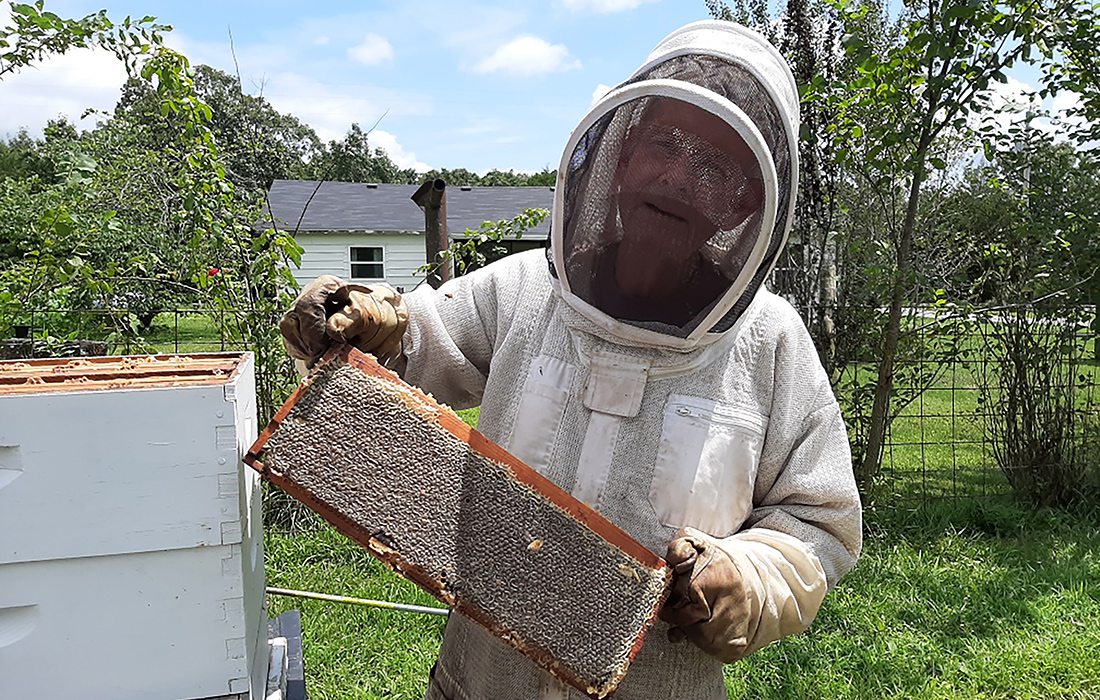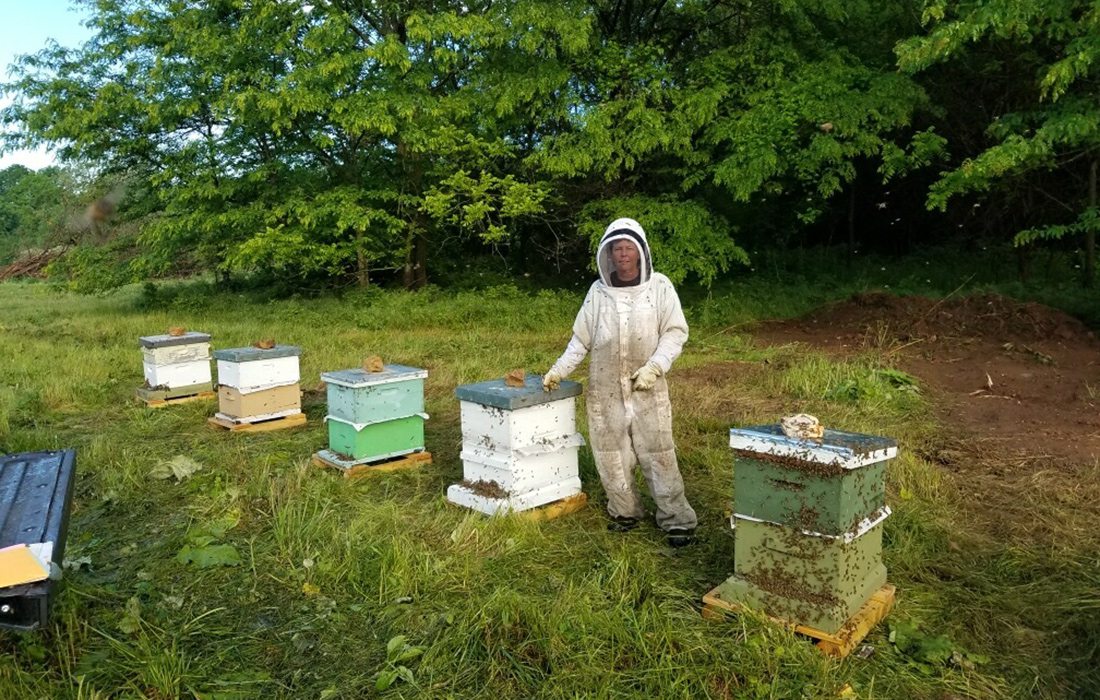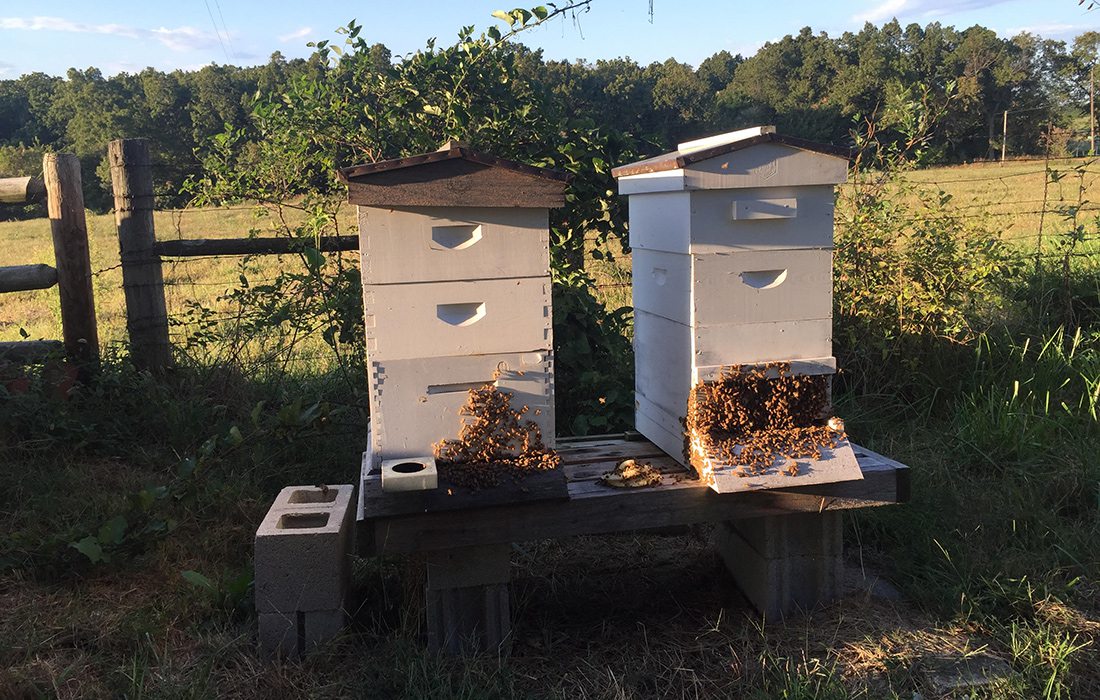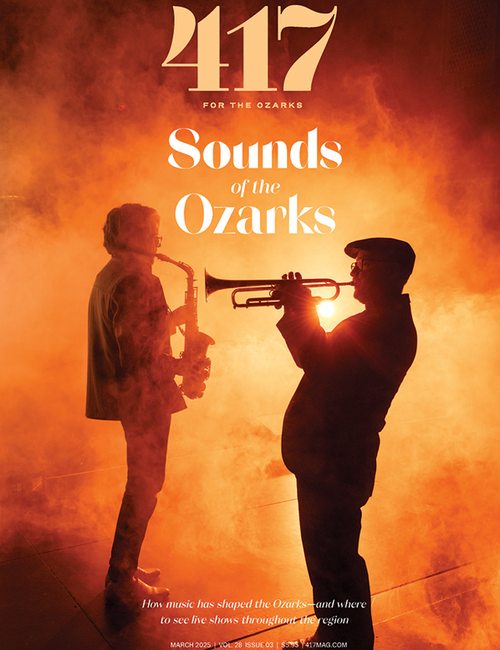Gardening
How to Get Started Beekeeping in Southwest Missouri
See how some Southwest Missouri residents are doing what they can to preserve one of the most important animals on the planet - Honeybees!
By Jenna deJong and Courtney Skornia
Apr 2023

More than just stinging critters, bees are important pollinators that can help bring your home garden to life with bursting floral blooms. And they aren’t alone—hummingbirds, butterflies and other critters get the job done too as they flit from plant to plant. To get the most out of what these little guys have to offer, create a garden space that’s welcoming and full of native plants.
Figuring out what kinds of plants to put in your garden can be complicated, but incorporating native plants ensures that pollinators will get the nutrients they need—plus they will attract more creatures to your garden. “Native flowers are specialized to support the needs of your native pollinator population,” says Shannon Khamare, garden educator at Baker Creek Heirloom Seed Co. “In order to make our ecosystem thrive, we need to support a wide range of native pollinators and we do this by having a diverse population of native plants.”
Different pollinators have unique characteristics that set them apart; for example, hummingbirds’ long beaks make it easier for them to feed from cone-shaped flowers and they prefer red-colored plants, so it’s essential to include variety within these plants, making sure to include different shapes, heights, colors and scents to make your garden a pollinator heaven.
Another tip is to plant flowers from different seasons, so that something in your garden is always blooming. “It’s important to implement plants that are meant for different seasons so that way it keeps the pollinators interested all year round,” says Jessica Kindall, store manager of Wild Birds Unlimited. In order for pollinators to thrive, it’s also essential to remember that your garden is a habitat. This will help pollinators locate your garden as a safe space and will encourage them to keep coming back. “When thinking about all wildlife, they all have the same basic needs: shelter, food and water. Thinking about these things when building your garden will keep the pollinators coming and steer you toward success,” says Katie Keith, Botanical Center Coordinator at the Springfield Botanical Gardens.
For hummingbirds, try adding a nectar solution feeder so that they have an additional source of nutrients, and to attract bees, invest in a bee hotel to increase the chances more of these buzzing creatures will gather around your garden. President and co-founder of Springfield-based BeeFoster, Ames Chiles, created a new way to protect bees by creating a single-use bee house, called the Beestra. “Putting up a Beestra can tell you a lot about your yard and if it’s welcoming to bees or not,” says Chiles. “I also recommend letting your yard go a little wild. Don’t rake the leaves every second of the day and leave the branches for a while. These things become habitats for bees and other pollinators.” Some weeds, such as dandelions, are great sources of food for butterflies and bees, so leaving them acts as a secondary nutrient source for those hungry pollinators.
Honeybees remain one of the most important animals on the planet, and some southwest Missouri residents are doing what they can to preserve these precious creatures. John Moore and Debra Shantz Hart had been friends for years before the two decided to enroll in a beginner’s beekeeping class in January 2010. The class was hosted by the Beekeepers Association of the Ozarks. Moore, who is formerly the president of Drury University, and Shantz Hart, owner of multiple housing developments, are both outdoors enthusiasts. Both of them own farms outside of Springfield, and their love for the outdoors drew them to beekeeping. “I was interested in it because my grandfather had done it, and I had helped him as a boy,” Moore says. “I’ve always been fascinated with flora and fauna of all sorts, and bees are fascinating insects. Besides, I thought it would be fun to see if I could be successful at keeping bees and producing honey, which I enjoy.”
In the 11 years since Moore started beekeeping, he’s created quite the operation. When he started, he had two colonies. Now he works with his business partner, Valerie Nichols, and the two of them have 75 to 100 colonies, depending on the year. As the years passed, Moore discovered that once he got the hang of beekeeping, he could make a little money selling honey. Depending on the year, he and Nichols make 200 to 250 gallons of honey, most of which they sell to clients earned throughout the years.
Moore’s operation is quite large, but Shantz Hart’s operation is much smaller. She is technically classified as a hobbyist, which is where all beekeepers start out. While Moore has dozens of colonies, Shantz Hart currently has four hives, which she keeps on her farm. Though both Moore and Shantz Hart keep their bees outside Springfield city limits, the City of Springfield’s City Council approved an ordinance in 2014 allowing beekeeping in residential neighborhoods. According to the ordinance, two hives are allowed on lots that are at least 5,000 square feet.

Though beekeeping might sound intimidating at first, it can feel rewarding, and it’s the kind of hobby that greatly benefits the environment. According to the Beekeepers Association of the Ozarks, if not for honeybees, the produce department at a grocery store could be 75% smaller. The association’s website says that food items like apples, almonds, watermelon, cucumbers and oranges are all staples that rely on bees for proper pollination.
Both Moore and Shantz Hart recommend those interested start out by enrolling in a beginner’s course with the Beekeepers Association of the Ozarks. The organization offers classes throughout the year, some of which are on the weekends. Moore also recommends finding a mentor, reading books and articles and watching YouTube videos to get a feel for whether or not the hobby is something you’re interested in. Moore recommends starting this process in late fall or early winter.

Once you’re ready to make the leap, the next step is purchasing your supplies. To begin beekeeping, hobbyists will need a veil and/or hood, gloves, a bee suit, hives and super boxes, frames, feeders, a smoker and, of course, bees. Shantz Hart purchased some of her supplies from Nixa Hardware & Seed Company and other local beekeepers. Moore also recommends Race Brothers Farm & Home Supply or purchasing gear online. A word of advice: Shantz Hart recommends purchasing a zippered hood instead of a drawstring hood to keep the bees away from your face. Once your supplies arrive and everything is set up, it’s time to begin beekeeping. Shantz Hart says March or April is usually the best time to set up a hive because bees are most active in late spring and early summer. Though bees are active all year round, their activity declines in July. One month later, Moore says he’s usually collecting the honey to be shared with clients and loved ones.












